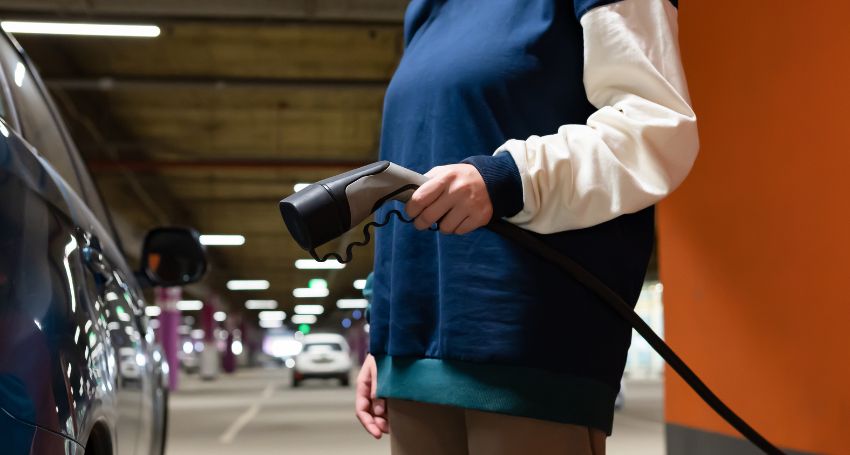
With the growing popularity of electric cars and the rising cost of new models, many drivers are asking: is buying a used EV a good idea? The answer isn’t a simple yes or no—it depends on your needs, expectations, and how much you know about electric vehicles. In this guide, we’ll break down everything you should consider when shopping for a used electric vehicle, including battery health, charging options, warranties, and overall reliability. Whether you’re looking to make your first EV purchase or add a second car to your household, knowing before you buy in the used car market is the key to making a smart decision.
What Should You Look for When Buying a Used Electric Car?
When considering a used EV, start by checking the battery’s health and warranty. The battery is the most valuable part of any electric vehicle, and its capacity to hold a charge diminishes over time. Ask for a detailed battery report and find out whether the vehicle is still under the manufacturer’s battery warranty.
Mileage matters less for EVs than for gas-powered cars, but it’s still important. A lightly used electric car may provide better range and reliability than an older model. Consider whether the vehicle has been regularly charged at home or through public chargers, and check its service history before buying a used electric vehicle.
How Important Is Battery Health and Life in a Used EV?
Battery health is one of the most critical aspects of purchasing a used EV. Over time, all EV batteries degrade, reducing their total charge capacity and electric range, which is important to know before you buy. The rate of battery degradation depends on factors like charging habits, climate, and usage.
A battery that has lost 20% of its original capacity may significantly reduce the car’s range, especially in older electric cars. Some EVs tend to retain battery life better than others. If the battery is in good condition and still under warranty, it could make buying a used EV a much smarter financial decision.
What Are the Pros and Cons of Buying a Used EV?
One clear benefit of buying a used electric car is the price. Used EV prices have continued to drop as more newer electric vehicles enter the market. You may get a high-quality vehicle for a fraction of the original price, and EVs generally have fewer moving parts, which translates to less maintenance.
On the downside, older EVs may have shorter range, outdated EV technology, and reduced battery performance. Some may not qualify for current federal tax credits. The key is to weigh these factors carefully against your daily driving needs and budget.
Do Used EVs Come with a Warranty?
Most electric vehicles come with two warranties: one for the vehicle and one for the battery, adding value when purchasing a used electric. While the basic warranty may expire after a few years or miles, the battery warranty often lasts longer—sometimes up to eight years or 100,000 miles. When buying a used electric car, confirm if the vehicle is still under warranty, particularly for the battery.
This can provide peace of mind and help protect against unexpected repair costs. If the car is no longer under warranty, factor that into your overall cost expectations.
How Much Range Should You Expect from a Used EV?
The electric range you’ll get from a used EV depends on its model, battery size, and age. Early EVs like the Nissan Leaf often offered less than 100 miles of range, while newer used models may offer over 200 miles. Tesla models and others equipped with larger battery packs tend to offer more miles of range even after a few years of use.
If your daily commute is short or you plan to use the car as a second vehicle, even an older EV with reduced range might work well in the used car market. However, if you need more flexibility or longer trips, opt for a used EV with a more substantial battery.
Can You Still Get a Tax Credit for a Used EV?
In some cases, yes. As of 2024, the federal government offers a used EV tax credit for qualifying vehicles and buyers. To qualify for a tax credit, the vehicle must meet certain conditions, including price limits and age, which is crucial when buying a used electric vehicle. The buyer must also meet income eligibility requirements.
While not every used EV qualifies, it’s worth researching whether the vehicle you’re interested in is eligible. A tax credit could reduce the overall cost of your purchase and make buying a used EV worth buying.
What About Charging Options for a Used EV?
Charging convenience is a major consideration when buying a used electric car. Does the vehicle come with a home charger or support fast charging? How accessible are public chargers in your area? Charging speed, compatibility, and frequency all affect the convenience of EV ownership.
EVs that support DC fast charging can reduce charging time significantly, while vehicles that only offer Level 2 charging may be less practical for busy drivers. Consider your daily habits and home charging availability before finalizing your purchase of a new EV or a used electric vehicle.
Is Buying a Used EV a Good Idea for First-Time EV Owners?
For many first-time EV buyers, purchasing a used electric car is a great entry point into the car market. It allows you to get familiar with EV ownership at a lower cost. Used EVs also offer a great way to understand charging habits, maintenance needs, and overall performance without the higher price tag of a new and used vehicle.
If you’re looking to buy a used electric car, do your homework. Look for battery health, remaining warranty, range, and vehicle history. Buying a used EV can be worth it if you focus on value and long-term reliability.
Are Used EVs Reliable Over the Long Term?
EVs tend to have fewer moving parts than gas-powered cars, which means less maintenance. Brakes, transmissions, and engine-related issues are less common in EVs. Brands like Tesla, Nissan, and Hyundai have produced models with strong reputations for long-term reliability.
Still, used electric vehicles aren’t completely immune to problems. Battery degradation, software issues, or charging port malfunctions can occur. A thorough pre-purchase inspection and a test drive are essential to ensure the vehicle performs as expected.
What Are the Best Practices When You Buy a Used EV?
- Check battery health and range.
- Verify charger compatibility and availability.
- Ensure the car qualifies for any tax credit.
- Confirm the battery warranty status.
- Look at the overall mileage and maintenance history.
- Always test drive and inspect before buying.
These steps help avoid surprises and ensure that you’re buying a used EV that aligns with your expectations and daily driving habits.
Conclusion
So, is buying a used EV a good idea? For many drivers, the answer is yes—if done thoughtfully. A used electric vehicle can be an economical, environmentally friendly, and practical choice for both new and experienced EV drivers. But success in the used EV market comes down to knowing before you buy and being informed. Check the battery health, charging compatibility, warranty coverage, and overall value before making a purchase. The EV landscape continues to evolve, and a well-selected used EV can be your gateway into cleaner, smarter driving.



